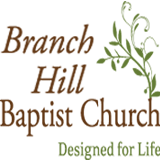The mystery of the seven stars which thou sawest in my right hand, and the seven golden candlesticks. The seven stars are the angels of the seven churches: and the seven candlesticks which thou sawest are the seven churches. (Revelation 1:20)
Ephesus means to ‘let go’ and ‘relax’. This was the church at the end of the apostolic age. Jesus said about it: “Nevertheless I have somewhat against thee, because thou hast left thy first love.” (Rev 2:4) 70 - 170 AD.
Smyrna means ‘myrr’, a bitter herb. This was the martyred church. Jesus told them, “Fear none of those things which thou shalt suffer: behold, the devil shall cast some of you into prison, that ye may be tried; and ye shall have tribulation ten days: be thou faithful unto death, and I will give thee a crown of life.” (Rev 2:10) 170-312 AD.
Pergamos means ‘much marraige’, as it married church with state. This was the time of Constantine, who introduced the doctrine of Balaam (Numbers chapters 22-25) and the Nicolaitans. (“Which things I hate.” -Rev. 2:15) ‘Niko’ means ‘to conquer’ and ‘Laos’ means ‘the people’. 312-606 AD.
Thyatira was during the Dark Ages. Jesus accused them of submitting to the spirit of Jezebel, “which calleth herself a prophetess, to teach and to seduce my servants to commit fornication, and to eat things sacrificed unto idols.” (Rev 2:20) 606-1520 AD.
Sardis means to ‘escape’. It had become a dead church and very ritualistic. Like the other churches, there was a believing remnant, in this case starting the reformation. (ex. Martin Luther) “…and they shall walk with me in white: for they are worthy” (Rev 3:4) 1520-1750 AD.
Philadelphia means ‘brotherly love’. This was the revived church, whith which Jesus was pleased. It was during this time that the King James Bible was exalted. “Because thou hast kept the word of my patience, I also will keep thee from the hour of temptation, which shall come upon all the world, to try them that dwell upon the earth.” (Rev 3:10) This is the only church of the seven that has survived. 1750-1900 AD.
Laodicea means ‘justice of the people’. It was (is) a lukewarm church, and is ’all about me’. It’s riches, Jesus warned, will cause a serious self-deception. “Because thou sayest, I am rich, and increased with goods, and have need of nothing; and knowest not that thou art wretched, and miserable, and poor, and blind, and naked:” (Rev 3:17) This church represented the final stage of apostacy of which we are currently living in. Always faithful, he promises: “Behold, I stand at the door, and knock: if any man hear my voice, and open the door, I will come in to him, and will sup with him, and he with me. (Rev 3:20) 1900 AD - NOW.



















